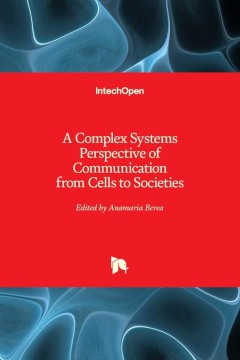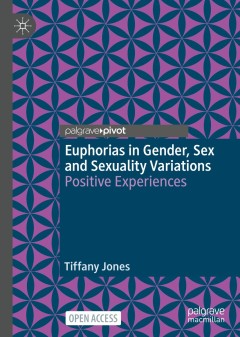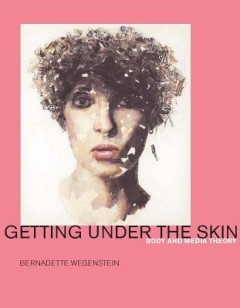Filter by

A Complex Systems Perspective of Communication from Cells to Societies
How does spirit relate to body? In this book, Karen Felter Vaucanson presents two adverse answers to this fundamental question, and she gives a detailed description and evaluation of the philosophies from which they stem. Whether we conceive of being in terms of static and isolated units or as processual and inherently relational, the answer to the spirit-body problem has implications for how w…
- Edition
- -
- ISBN/ISSN
- 978-1-83962-087-4
- Collation
- 98
- Series Title
- -
- Call Number
- -

Disability Inclusion in Humanitarian Crises: Robust Human Rights Norms?
This open access book studies disability inclusion in humanitarian crises. It addresses the challenges of recognizing and including persons with disabilities and indicates the degree to which disability is being mainstreamed in international law and humanitarian action. Further, it explores how international organizations have promoted a rights-based understanding of disability in international…
- Edition
- 1
- ISBN/ISSN
- 978-3-031-53809-4
- Collation
- 978-3-031-53809-4
- Series Title
- -
- Call Number
- -

Teilhabeforschung – Konturen eines neuen Forschungsfeldes
Teilhabeforschung untersucht die Lebenslagen von Menschen mit Beeinträchtigungen und Behinderungen unter den normativen Perspektiven von Inklusion und gleichberechtigter Teilhabe. Sie berücksichtigt, dass sich die deutschsprachige Forschung zum komplexen Phänomen der Beeinträchtigung und Behinderung über die Jahre stark ausdifferenziert hat und mittlerweile unterschiedliche Disziplinen und…
- Edition
- 1
- ISBN/ISSN
- 9783658383053
- Collation
- X, 544 hlm; ill., lamp.,
- Series Title
- -
- Call Number
- -

Euphorias in Gender, Sex and Sexuality Variations
This Open Access book uses the concept of ‘euphoria’ to investigate when, why and how marginal gender, sex and sexuality groups have positive experiences of their diverse variations even within repressive and disordering contexts. Drawing on data from multiple online surveys including a study of 2,407 LGBTQ+ people and a study of 272 people with intersex variations, it names and offers a ne…
- Edition
- 1
- ISBN/ISSN
- 978-3-031-23756-0
- Collation
- XV, 202
- Series Title
- -
- Call Number
- -

Teilhabeforschung – Konturen eines neuen Forschungsfeldes
Teilhabeforschung untersucht die Lebenslagen von Menschen mit Beeinträchtigungen und Behinderungen unter den normativen Perspektiven von Inklusion und gleichberechtigter Teilhabe. Sie berücksichtigt, dass sich die deutschsprachige Forschung zum komplexen Phänomen der Beeinträchtigung und Behinderung über die Jahre stark ausdifferenziert hat und mittlerweile unterschiedliche Disziplinen und…
- Edition
- 1
- ISBN/ISSN
- 978-3-658-38305-3
- Collation
- -
- Series Title
- Beiträge zur Teilhabeforschung
- Call Number
- X, 544

Teilhabeforschung – Konturen eines neuen Forschungsfeldes
Teilhabeforschung untersucht die Lebenslagen von Menschen mit Beeinträchtigungen und Behinderungen unter den normativen Perspektiven von Inklusion und gleichberechtigter Teilhabe. Sie berücksichtigt, dass sich die deutschsprachige Forschung zum komplexen Phänomen der Beeinträchtigung und Behinderung über die Jahre stark ausdifferenziert hat und mittlerweile unterschiedliche Disziplinen und…
- Edition
- 1
- ISBN/ISSN
- 978-3-658-38305-3
- Collation
- -
- Series Title
- Beiträge zur Teilhabeforschung
- Call Number
- X, 544

The Limits of Consent
This open access book examines the ways that consent operates in contemporary culture, suggesting it is a useful starting point to respectful relationships. This work, however, seeks to delve deeper, into the more complicated aspects of sexual consent. It examines the ways meaningful consent is difficult, if not impossible, in relationships that involve intimate partner violence or family viole…
- Edition
- -
- ISBN/ISSN
- 978-3-031-46622-9
- Collation
- IX, 138
- Series Title
- -
- Call Number
- -

The subject's matter :self-consciousness and the body
The body may be the object we know the best. It is the only object from which we constantly receive a flow of information through sight and touch; and it is the only object we can experience from the inside, through our proprioceptive, vestibular, and visceral senses. Yet there have been very few books that have attempted to consolidate our understanding of the body as it figures in our experie…
- Edition
- -
- ISBN/ISSN
- 9780262342599
- Collation
- 1 online resource (xxi, 402 pages) :illustrations.
- Series Title
- -
- Call Number
- -

Trees of the brain, roots of the mind
"The human brain is often described as the most complex object in the universe. Tens of billions of nerve cells-tiny tree-like structures--make up a massive network with enormous computational power. In this book, Giorgio Ascoli reveals another aspect of the human brain: the stunning beauty of its cellular form. Doing so, he makes a provocative claim about the mind-brain relationship. If each n…
- Edition
- -
- ISBN/ISSN
- 9780262329026
- Collation
- 1 online resource (xiv, 232 pages) :illustrations
- Series Title
- -
- Call Number
- -

Getting under the skin : the body and media theory
"The body as an object of critical study dominates disciplines across the humanities to such an extent that a new discipline has emerged: body criticism. In Getting Under the Skin, Bernadette Wegenstein traces contemporary body discourse in philosophy and cultural studies to its roots in twentieth-century thought - showing how psychoanalysis, phenomenology, cognitive science, and feminist theor…
- Edition
- -
- ISBN/ISSN
- 9780262285889
- Collation
- 1 online resource (xxii, 211 pages) : illustrations
- Series Title
- -
- Call Number
- 302 WEG g
 Computer Science, Information & General Works
Computer Science, Information & General Works  Philosophy & Psychology
Philosophy & Psychology  Religion
Religion  Social Sciences
Social Sciences  Language
Language  Pure Science
Pure Science  Applied Sciences
Applied Sciences  Art & Recreation
Art & Recreation  Literature
Literature  History & Geography
History & Geography